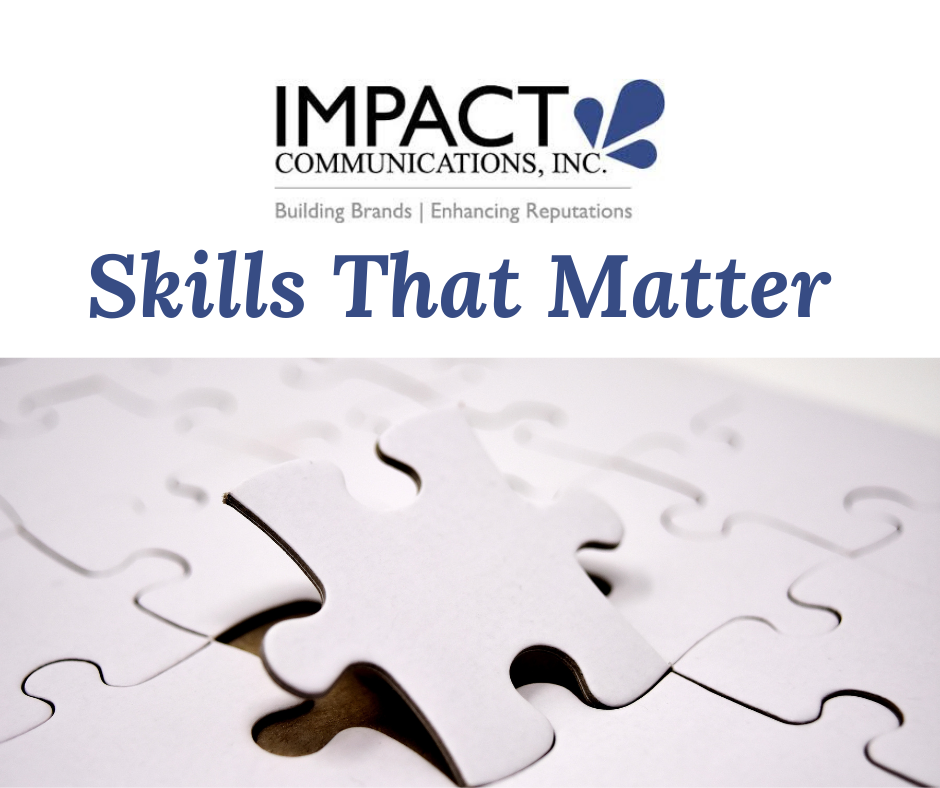|
In the study we conducted in 2020, Impact Communications found that when it comes to reassuring clients during turbulent times, “I care” communications are way more important than “I know” communications. Of course, communicating effectively was not easy during the worst parts of 2020 and the dog years of 2021. So, how do you master even the toughest of conversations? This article will dive deeper into the topic. You will also find links to resources and ideas for becoming more resilient yourself as a "first responder" of sorts.  ADVISORS AS FIRST RESPONDERS NEED TO BE RESILIENT The coronavirus crisis created challenges galore for financial professionals, many of whom had never worked from home before. Professional financial advisors had their own family dynamics and health concerns to manage while at the same time reassuring jittery clients about their investments and financial plans. The stock market took a dive and many people worried about the global economy and their own livelihoods and financial well-being. There was political and social unrest on top of the pandemic. Business professionals, especially financial advisors, had to become more resilient than ever. According to Sonya Lutter, Ph.D., CFP®, a Department Head at Kansas State University, many advisors became “first responders” of sorts as they helped triage their clients fears and concerns. “Life planners have been recommending for years that advisors lead with empathy and communication,” Dr. Lutter said. “The need for technical skills in security analysis are far less important in the digital age where a computer can spit out the analysis and likely an interpretation of technical data in minutes. The harder part is developing empathy, compassion, and exquisite listening. COVID pushed us in the direction of ‘life planning’ or ‘financial therapy’ or ‘compassionate financial planning’ a little further and faster than it perhaps would have happened without a pandemic.” How prepared are advisors to talk about health – including mental health? Lutter asserts that trauma-response skills are something planners/advisors need more of. “Anything planners can do to ramp up their knowledge of crisis management and trauma response is crucial. Clients need communication and compassion. This comes naturally to some, but even for those to whom empathy and compassion come naturally, handling trauma and crisis correctly could in extreme cases mean the difference between life and death. COVID was a big traumatic event, but it is certainly not the last stressful and traumatic event clients will experience.” As a result, K-State has created a Conflict Resolution program – something readers of this publication may wish to consider (https://www.hhs.k-state.edu/ahs/academics/cr/index.html). CONVERSATIONS THAT MATTER I spoke to Lutter and several other authorities, including Dr. Meir Statman, Bob Veres, Carl Richards and Dr. Daniel Crosby, in fall 2020 as a part of the Conversations That Matter project sponsored by the Advisor Solutions division of Allianz Life Insurance Company of North America. Through an independently-conducted survey and live polling via corresponding webinars coupled with dozens of 1:1 interviews, we set out to see just how much advisors had to adjust to the challenges presented by the 2020 crisis. 342 financial advisors told us how their year had been, and we were able to create a library of helpful content including a survey summary, some video interviews with psychologists and other experts, corresponding webinars and a special report – all of which discuss in detail how the pandemic affected the conversations financial advisors were having with their clients. So here’s the bottom line: Our study found that “I care” communications were way more important than “I know” communications. We determined that most advisors increased the volume of their communications, the communication channels they used, and the topics they discussed. From phone calls to emails to video chat, advisors were communicating more with their clients than ever before. In a profession where most advisors typically connect with their clients in person, finding ways to continue to have those impactful, meaningful conversations was no longer a nice to have – it was essential. Advisors had to learn to create connectivity with clients over a video camera, or over a telephone – and that creates its own set of challenges. There are certain cues that we can miss in individual personalities and in body language when we have client meetings over a camera or just over the phone. It was a very interesting exercise for advisors, but I do feel that the stress of these shared experiences has built a sense of community. After all, we were then – and still are – going through this together as human beings, not just business professionals. For some advisors, 2020 was a year of struggle just to maintain the status quo. But other advisors who were smart about their client outreach and communications actually had their best year ever – despite 2020’s myriad challenges. During these turbulent times, our Conversations That Matter study showed that it was the “I care” communications – and actions – that seemed to resonate most with these financial advisors’ clients. MASTERING THE CONVERSATION Since then, Allianz Life Insurance Company of North America and Impact Communications have been hard at work developing new tools to help financial advisors better connect with current and prospective clients. We are currently working on a digital toolkit aimed at helping advisors discover, improve, and best utilize their personal communication style. Part One of the “Mastering The Conversation” toolkit will include an advisor self-assessment quiz and a guide filled with advice from fourteen communications experts. Some of the financial services industry’s top communications experts – including Carolyn McClanahan, Stephanie Bogan, Kathleen Kingsbury, Mitch Anthony, Marion Asnes, Heather Kelly, Steve Gresham, Dennis Stearns, Julie Littlechild, Stephen Wershing, Paul Kingsman, Jody Jacobson, Bob Veres and Marie Swift – lent ideas and expertise to this guide. The quiz and guide will help financial advisors identify areas of opportunity in their client conversations. In the forthcoming communications guide, financial advisors will learn how they can: · Improve active listening skills · Better prepare for difficult conversations · Build trust with clients Part Two of the digital toolkit being developed will include an array of client conversation starters to help advisors address client concerns. Today’s annuities and modern risk mitigation solutions can work well within the context of a comprehensive financial plan – and there are solutions available now that can help fee-only advisors (professionals who do not accept commission-based compensation in any form) meet their fiduciary obligations. There will also be advisor presentations that advisors can use to educate their teams and help their clients understand their professional recommendations. The Conversations That Matter report is available now. Many of the discoveries from the report were included in the webinar hosted by NAPFA (the National Association of Personal Financial Advisors) in April 2021 as well as the webinar hosted by RIA Channel in November 2020. Financial advisors and interested others are invited to download the Conversations That Matter report. Financial advisors who’d like to be notified of forthcoming tools and resources: Follow @MarieSwift on Twitter, and/or Impact Communications, Inc. on Facebook and LinkedIn. Learn more about "I Know" versus "I Care" communications here: https://www.impactcommunications.org/best-practices-blog/mastering-the-conversation-part-one Be sure to download Mastering The Conversation: A Guide to Excellent Communication (Advice from 14 Experts) as well.  Marie Swift is President and CEO of Impact Communications, Inc., a full-service marketing communications firm serving a select group of independent financial advisors and allied institutions. Impact Communications works solely within the financial services industry. Credibility Marketing is a key area of expertise. Learn more at www.ImpactCommunications.org. Comments are closed.
|
About
|
|
Stay Connected
|
Phone: 913-649-5009
©2023 Impact Communications, Inc.
|




